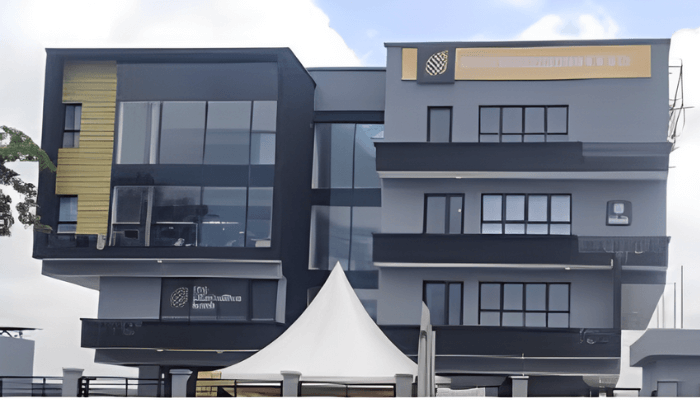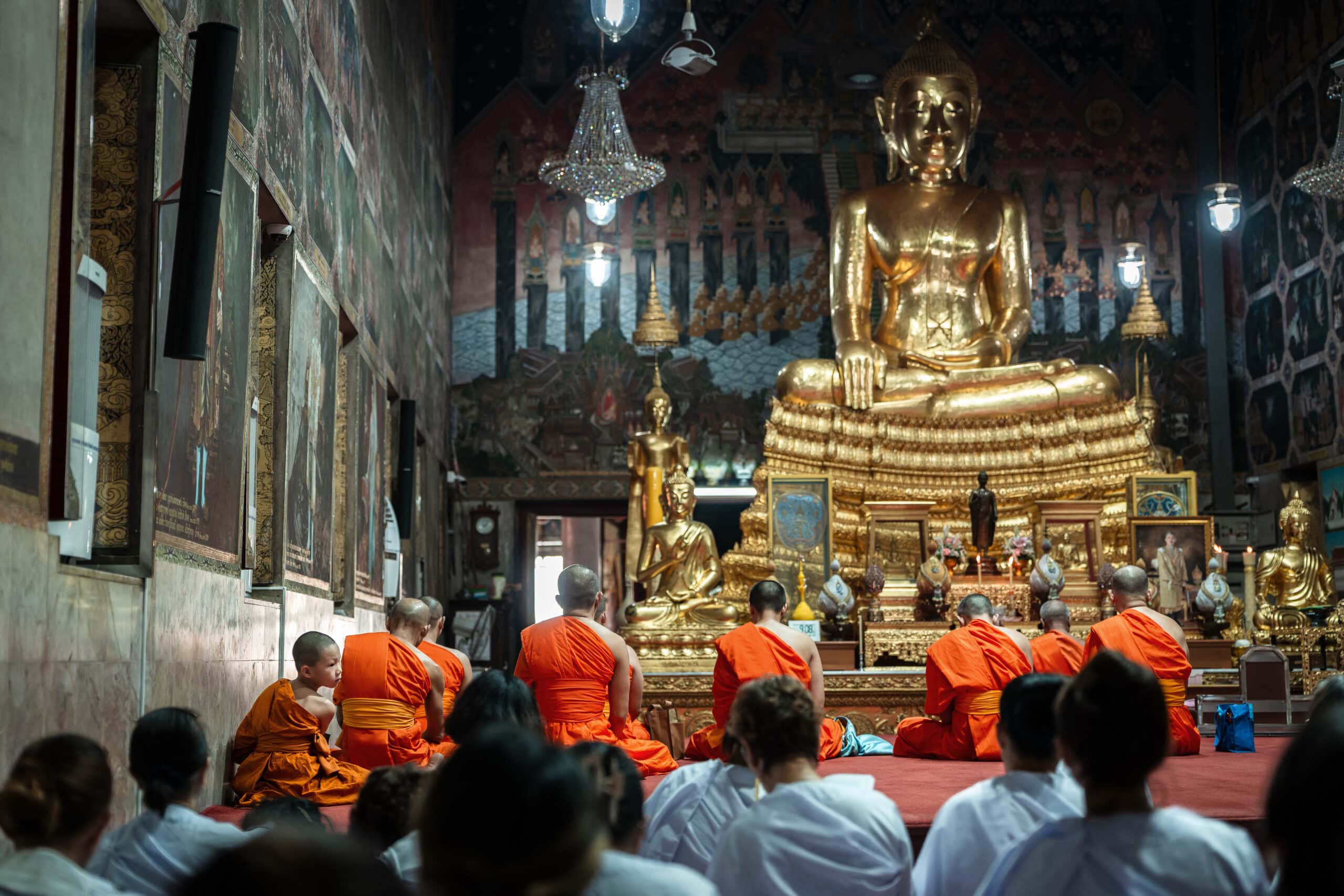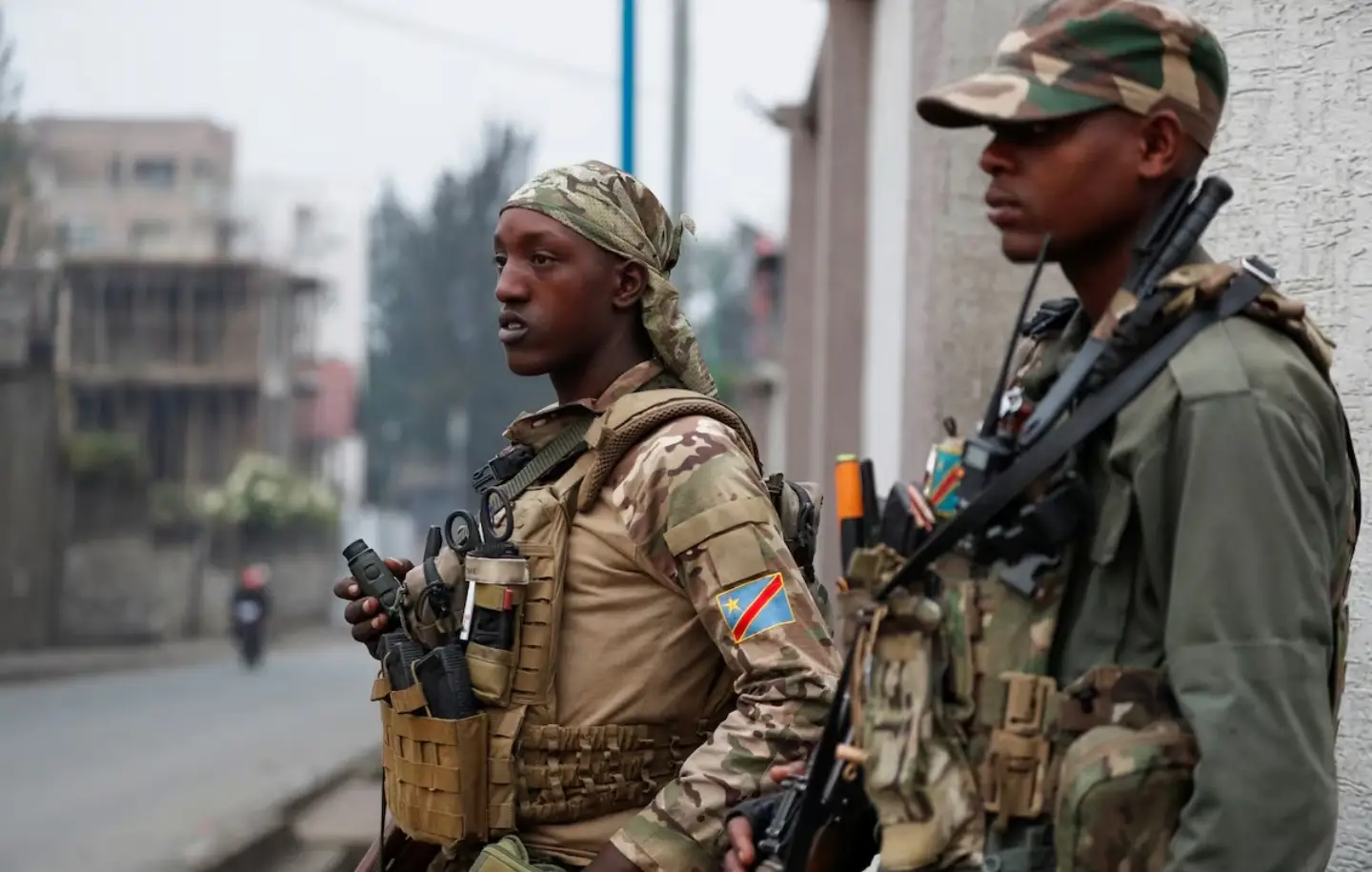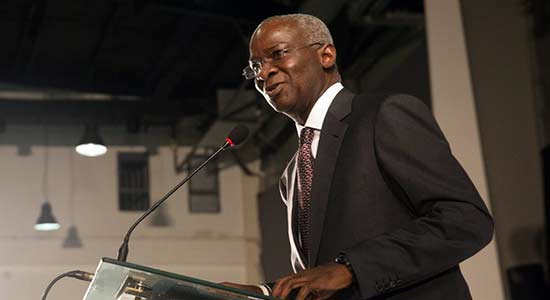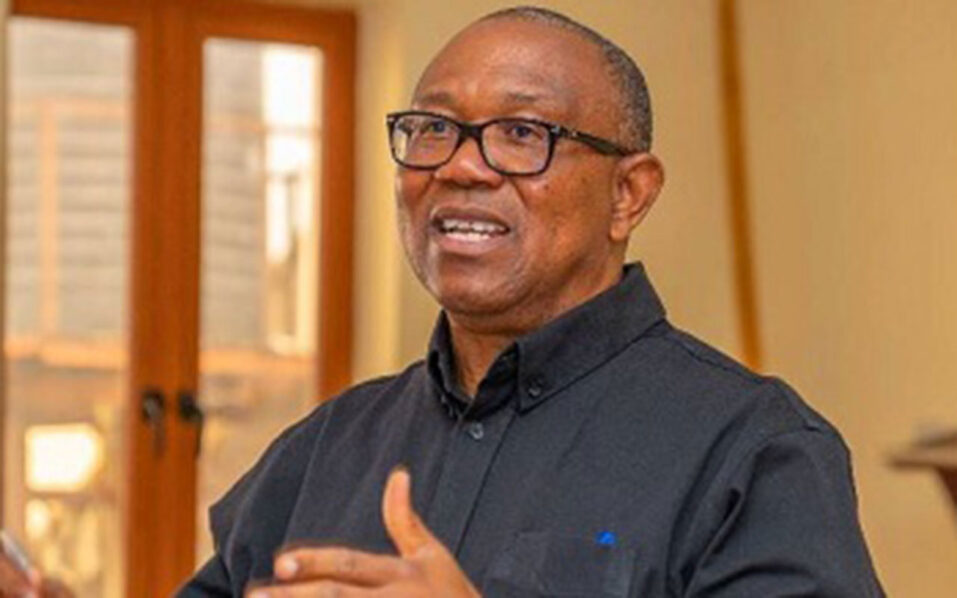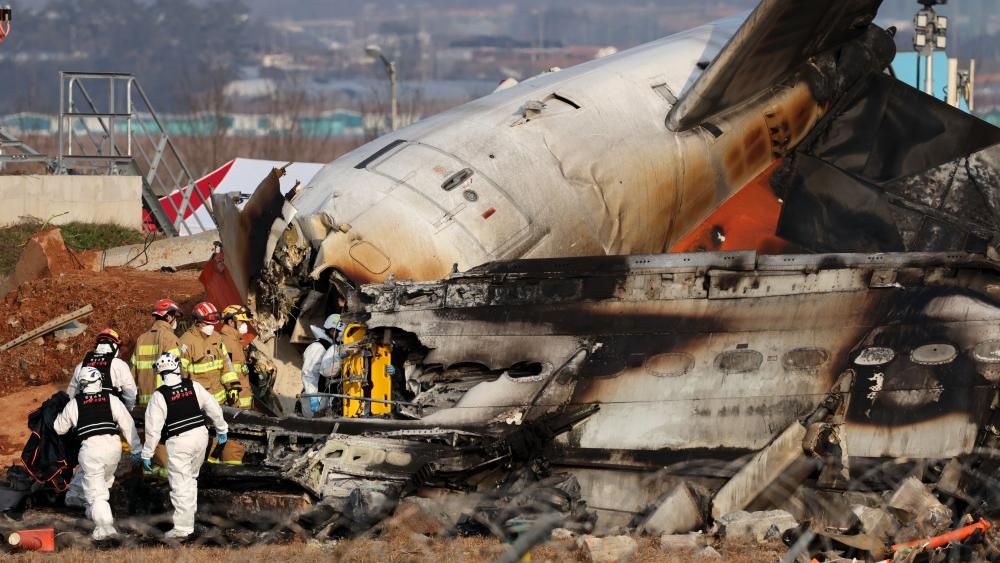A Jeju Air flight from Thailand to South Korea ended in tragedy on Sunday when the plane crashed on arrival at Muan International Airport, killing 179 people. The Boeing 737-800, carrying 181 passengers and crew, collided with a barrier and burst into flames, leaving only two flight attendants alive, rescued from the wreckage.
Authorities have cited a bird strike as the likely cause of the disaster, the deadliest aviation accident on South Korean soil. Fire officials described the aircraft as “almost completely destroyed,” with passengers flung from the plane during the crash.
Dramatic video footage showed the plane skidding off the runway on its belly, smoke billowing from its engines before it slammed into a wall and exploded.
“Of the 179 dead, 65 have been identified,” South Korea’s fire agency reported, adding that DNA retrieval efforts were underway to identify the remaining victims.
Scenes of Grief at the Airport
Inside Muan International Airport, anguished families gathered, awaiting news of their loved ones. As officials read the names of the identified victims, sobs and cries of grief echoed through the terminal.
“My younger sister went to heaven today,” said a 65-year-old woman, giving only her surname, Jo.
Survivors and Investigation
The two survivors, both flight attendants, were pulled from the wreckage, but hopes for additional survivors were dashed. A fire department official explained that most passengers were ejected from the aircraft during the crash, making survival unlikely.
Under floodlights, rescue teams used heavy equipment to remove the burned-out fuselage from the runway. Debris, including charred luggage and plane seats, was scattered across the crash site.
Both the flight data recorder and cockpit voice recorder, critical for understanding the crash, have been recovered, said Deputy Transport Minister Joo Jong-wan.
Initial findings suggest the crash occurred after the control tower warned of a bird strike. The pilot declared a “mayday” moments later as the plane attempted to land but veered off the runway. Officials have ruled out runway length as a contributing factor.
Government Response and Mourning
South Korea’s acting President, Choi Sang-mok, visited the crash site after convening an emergency cabinet meeting. He announced a seven-day national mourning period, during which memorial altars will be set up across the country.
“The government will spare no effort to support the bereaved families and investigate the cause of this tragedy,” Choi said.
Jeju Air officials offered a public apology, bowing deeply during a press conference in Seoul. Boeing also pledged support, stating it was in contact with the airline.
Aviation Safety Record
The crash marks the first fatal accident in Jeju Air’s history since its establishment in 2005. South Korea has a strong aviation safety record, though bird strikes remain a persistent global risk.
The incident bears similarities to the 2009 “Miracle on the Hudson,” where a US Airways plane successfully landed on New York’s Hudson River after bird strikes disabled both engines. Unlike Sunday’s tragedy, all passengers on board survived.

